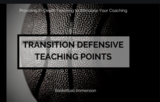
This resource is designed to be used in Health or Physical Education course in a basketball unit.
- Subject:
- Health, Medicine and Nursing
- Material Type:
- Activity/Lab
- Case Study
- Homework/Assignment
- Author:
- Shane Boeve
- Date Added:
- 01/16/2021

This resource is designed to be used in Health or Physical Education course in a basketball unit.
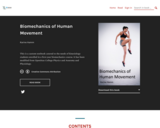
Short Description:
This is a custom textbook catered to the needs of kinesiology students enrolled in a first-year biomechanics course. It has been modified from OpenStax College Physics and Anatomy and Physiology.
Word Count: 158328
(Note: This resource's metadata has been created automatically by reformatting and/or combining the information that the author initially provided as part of a bulk import process.)
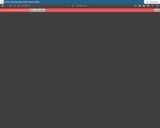
This text represents the collaboration of more than 70 authors from multiple countries. Essentials of Exercise and Sport Psychology: An Open Access Textbook brings this diverse set of experts together to provide a free, open, accessible textbook for students studying exercise and sport psychology. Primarily directed at undergraduate students, this well-referenced book is also appropriate for graduate students.
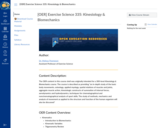
The OER content in this course shell was originally intended for a 300-level Kinesiology & Biomechanics course. The course is described as providing "an in-depth study of the basic body movements, osteology, applied myology, spatial relations of muscles and joints, aggregate muscle action, kinesiologic constructs of summation of internal forces, aerodynamics and hydrodynamics, techniques for cinematographical and noncinematographical analysis of sport skills. The study of methods, mechanics and analysis of movement as applied to the structure and function of the human organism will also be discussed."
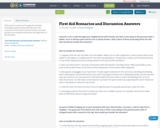
This resource can be used to apply the student's knowledge gained during a First Aid class. The scenarios can be used in a lecture format or in small groups to encourage the discussion and application of first aid skills.
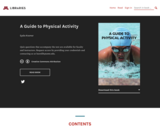
Quiz questions that accompany the text are available for faculty and instructors. Request access by providing your credentials and contacting us at learnlib@umn.edu.
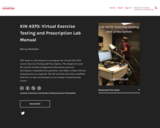
Short Description:
This book is a lab manual to accompany the Virtual KIN 4370 course: Exercise Testing and Prescription. The chapter for each lab activity includes background information, protocol description, comprehension questions, and tables to help with test interpretation (as required). The lab activities have been modified from face-to-face environment to an at-home virtual learning course.
Word Count: 13166
Included H5P activities: 33
(Note: This resource's metadata has been created automatically as part of a bulk import process by reformatting and/or combining the information that the author initially provided. As a result, there may be errors in formatting.)
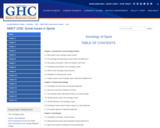
Studying sports as social phenomena helps us understand the ways that social class, gender, race and ethnicity, sexuality, and physical ability influence our everyday lives. Sports are also linked with the organization and dynamics of family life. Parents and educators see them as tools for teaching values to young people. Politicians often see them as vehicles for developing local and national identities, and corporations sponsor certain types of sports to market both products and ways of thinking about competition and consumption to people worldwide. Corporate executives now realize that sponsoring people’s pleasures (i.e., sporting events) produces support for their products. At the same time, most sports organizations seek corporate support to ensure their survival.
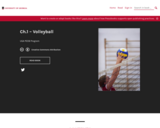
Welcome to the volleyball activity content. As you work through the content, keep in mind there will be a quiz at the end to assess your knowledge.
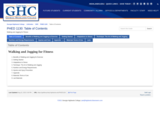
The benefits of physical activity and exercise are universally recognized—and have been for far longer than one might think. Our Paleolithic ancestors regularly engaged in physical activity to survive. However, rather than chasing after a soccer ball to win a game or taking a leisurely stroll down a tree-lined path, they “worked out” by chasing after their next meal. For them, no exercise meant no food. How’s that for a health benefit?
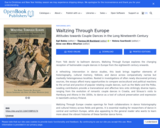
A refreshing intervention in dance studies, this book brings together elements of historiography, cultural memory, folklore, and dance across comparatively narrow but markedly heterogeneous localities. Rooted in investigations of often newly discovered primary sources, the essays afford many opportunities to compare sociocultural and political reactions to the arrival and practice of popular rotating couple dances, such as the Waltz and the Polka. Leading contributors provide a transnational and affective lens onto strikingly diverse topics, ranging from the evolution of romantic couple dances in Croatia, and Strauss’s visits to Hamburg and Altona in the 1830s, to dance as a tool of cultural preservation and expression in twentieth-century Finland.
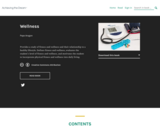
Short Description:
Provides a study of fitness and wellness and their relationship to a healthy lifestyle. Defines fitness and wellness, evaluates the student's level of fitness and wellness, and motivates the student to incorporate physical fitness and wellness into daily living.
Word Count: 160474
(Note: This resource's metadata has been created automatically by reformatting and/or combining the information that the author initially provided as part of a bulk import process.)

This Activity is for students to get creative and explore their physical ability and comforts through yoga poses. Students should feel confortable and confident teaching their classmates.